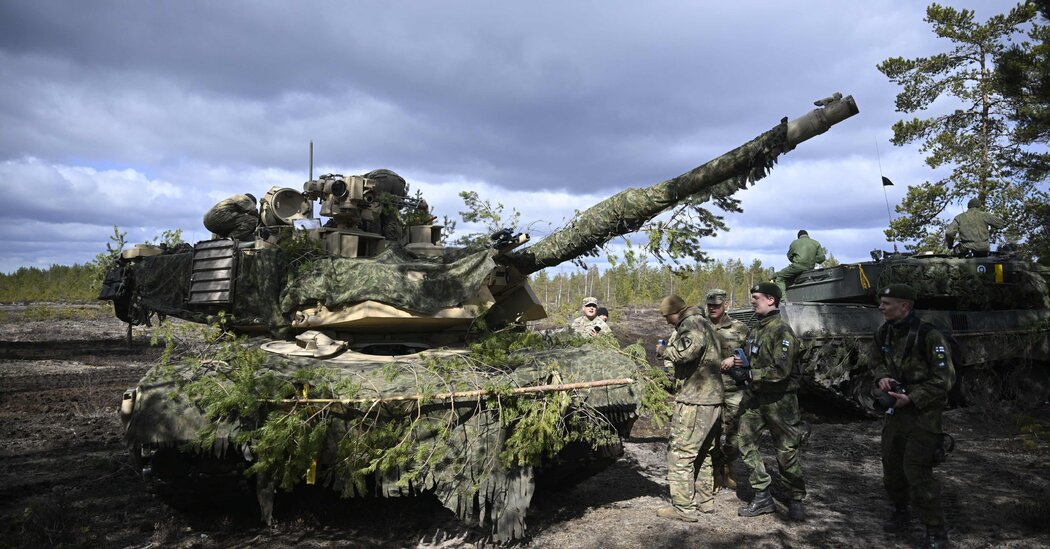The World Trade Organization confirmed on Tuesday that Ukraine had filed a complaint to the global trade body against Hungary, Poland and Slovakia after the three countries extended bans on imports of Ukrainian agricultural products, breaking with the European Union’s policy.
Daniel Pruzin, a spokesman for the organization, said that Ukraine had filed a request for consultations on Monday evening, the first step in a dispute settlement process. Ukraine will hold discussions with the three countries, but if no agreement is reached within 60 days, “Ukraine would then be free to request a dispute panel to rule on its claims,” Mr. Pruzin said.
Ukraine’s economy minister, Yulia Svyrydenko, said in a statement on Monday that the three countries, which are members of the European Union, could not impose bans unilaterally and that trade policy is the responsibility of the bloc’s authorities.
Poland, Slovakia and Hungary instituted their bans over the weekend, saying they were necessary to protect their own farmers who had complained that cheap grain from Ukraine — one of the world’s largest exporters — had undermined their own markets.
After Russia launched its full-scale invasion of Ukraine in February last year, the European Union agreed to allow Ukraine’s grains into the bloc free of tariffs to support the country’s economy in wartime and alleviate a global food crisis prompted by Russia’s naval blockade of Ukrainian ports on the Black Sea.
But the tariff waiver backfired for Ukraine’s nearest E.U. neighbors, with tons of Ukrainian grain, significantly cheaper than E.U. equivalents, flooding those markets and causing prices in those nations to plummet.
Hoping to solve the issue, and quell growing unrest among farmers in Eastern European nations, the European Union temporarily banned Ukrainian agriculture imports in some countries, including Poland, Slovakia and Hungary, though the products were allowed to transit through them. When it lifted the ban on Friday, the three countries defied the bloc and said they would continue to bar Ukrainian grain from being sold within their borders.
Poland and Slovakia are holding general elections in coming weeks and farmers in both countries form an important voting bloc. “We will take steps to defend the interest of Polish farmers,” Piotr Müller, a spokesman for the Polish government, said in a statement late Tuesday.
The dispute risks threatening the cohesion of the bloc in its support for Ukraine and of complicating relations between Ukraine and its three neighbors, which have been among Kyiv’s strongest wartime backers.
On Tuesday, Janusz Wojciechowski, the E.U. agricultural commissioner and a member of Poland’s governing party, appeared to be toeing his country’s line, expressing surprise that Ukraine had criticized the extension of the ban. Mr. Wojciechowski said at a news conference in Brussels that Ukrainian grain exports from May to July 2023, when the ban was in place, had increased compared with the same period last year.
In a statement on Friday about the ban’s expiration, the European Commission said that it had ended “market distortions” but added that Ukraine would have to introduce legal measures within 30 days to prevent any more.
On Tuesday, Mykola Solskyi, Ukraine’s agriculture minister, said in a statement that exporters of four crops — corn, rapeseed, sunflower and wheat — must receive permits from the government to “control and regulate” the flow to European countries.
“We believe that such a scheme of work will satisfy all parties,” Mr. Solskyi said. “And even those three countries that are currently opposing Ukrainian agricultural exports will also join this plan. Because we all have one goal — to win this terrible war.”
Monika Pronczuk contributed reporting


